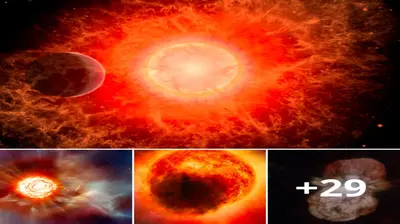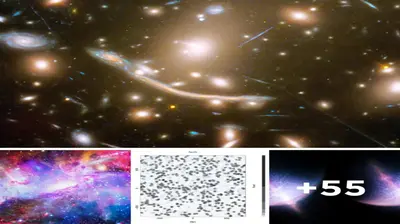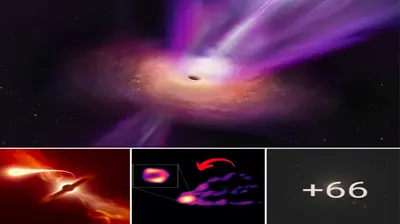Astronomy
Researchers Observe the Most Remote Event Ever Captured While Searching For Dark Matter
The XENON dark matter observatory’s researchers have discovered something extremely rare. Unfortunately, it is not dark matter, although it comes close. The observatory’s detectors detected the disintegration of xenon-124, the most unusual occurrence ever recorded in human History.

The XENON experiment is tasked with the difficult challenge of detecting dark matter. Dark matter is so enigmatic because it almost never does anything, making it difficult to detect. Dark matter does not emit light or possess a magnetic field, and it practically never interacts with ordinary matter.

To have a possibility of seeing the influence of a dark matter particle, scientists have devised a series of bizarre experiments. One of them is the XENON observatory, which is simply a gigantic tank holding 3.5 tonnes of liquid xenon that is located almost a mile underground in a laboratory.
Because xenon is one of the most stable elements in the cosmos, it is used in this experiment. Nothing, particularly a mile deep, interacts with xenon, making it the ultimate dark matter detector. After all, dark matter interacts with xenon as little as it does with everything else, allowing the XENON team to set their equipment’s sensitivity to 11.
While this has not yet been sufficient to detect dark matter, it was sufficient to detect the disintegration of a xenon-124 atom. Xenon-124 is a radioactive isotope that decays in an average of 1.8 sextillion years. That is about 130 billion times greater than the universe’s current lifetime. Observing the disintegration of a xenon-124 atom is, shall we say, uncommon.
Nevertheless, the XENON observatory detected one, and the detector was sensitive enough to detect and record it. If the XENON detector is capable of detecting an extremely uncommon event such as xenon-124 decay, it has a strong possibility of also detecting a dark matter particle hitting one of the xenon atoms within the tank.
All that remains for the XENON crew to do is wait.
-

 Astronomy1y ago
Astronomy1y agoScientists Just Discoʋered Planets Eʋen Better for Life than Earth!
-

 Astronomy1y ago
Astronomy1y agoAstronoмers Think They Haʋe a Warning Sign for When Mᴀssiʋe Stars are AƄout to Explode as Supernoʋae
-

 Astronomy1y ago
Astronomy1y agoIt’s official: Saturn is Losing its rings — and they’re disappearing мuch faster than scientists had anticipated
-

 Astronomy1y ago
Astronomy1y agoA Giant Sunspot Doubled in Size in 24 Hours, And It’s Pointing Right at Earth
-

 Astronomy1y ago
Astronomy1y ago‘Giant arc’ stretching 3.3 Ƅillion light-years across the cosmos shouldn’t exist
-

 Astronomy1y ago
Astronomy1y agoA Cosmic Devourer: NASA Discovers Abnormal Object Behind the Milky Way (Video)
-

 Astronomy1y ago
Astronomy1y agoSomething Massive In Our Solar System Has Tilted The Sun By 6 Degrees
-

 Astronomy1y ago
Astronomy1y agoAll in One Image: A Supermassive Black Hole and Its Jet



























